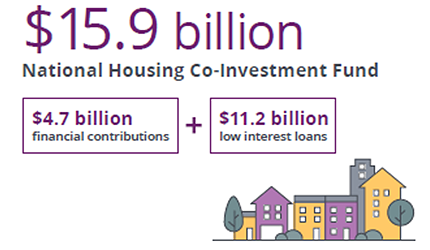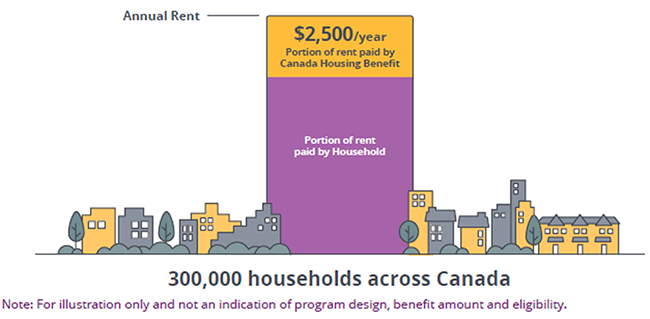Governments of Canada and Ontario providing housing support for human trafficking survivors
Author: Toronto Real Estate Admin / Category: News Bulletin
ONTARIO, December 21, 2017 — The Governments of Canada and Ontario have announced more than $7 million to help survivors of human trafficking in Ontario through new transitional housing and rent assistance. This will help ensure that survivors have a safe place to live while they access services and supports to help them heal from trauma and rebuild their lives.
This funding will be delivered through the joint federal-provincial Investment in Affordable Housing (IAH) agreement. It will allow for partners and community agencies receiving funding through Ontario’s Anti-Human Trafficking Community Supports Fund and Indigenous-led Initiatives Fund to help survivors of human trafficking access safe housing. For example:
- The City of Toronto, in partnership with Covenant House, will create a transition home for women and girls, with comprehensive, on-site services such as mental health and addictions treatment, education, legal and income supports.
- Survivors of human trafficking will be able to get help paying rent while they also receive culturally respectful wraparound supports from Native Women’s Inc. Hamilton Wentworth.
- Centre Passerelle pour femmes du Nord de l’Ontario will help French-speaking survivors of human trafficking access rent assistance in addition to providing transitional supports such as legal assistance, counselling and other services.
- Sexual Assault Survivors’ Centre Sarnia Lambton will help survivors access rent assistance while also offering targeted supports through a dedicated human trafficking worker and enhanced coordination through a community response protocol.
Quick facts:
- The following organizations are approved for funding to create a residence or transition home for survivors of human trafficking:
- Huronia Transition Homes (Midland) — $600,000
- City of Toronto (Toronto) — $885,000.
- The following organizations are approved for funding to help survivors of human trafficking pay their rent:
- Sexual Assault Violence Intervention Services of Halton (Halton) — $413,910
- Native Women’s Inc. Hamilton Wentworth (Hamilton) — $188,000
- Addiction Services of Thames Valley (London) — $209,760
- London Abused Women’s Centre (London) — $393,750
- Huronia Transition Homes (Midland) — $226,800
- A New Day Youth and Adult Services (Ottawa) — $79,350
- Voice Found (Ottawa) — $478,800
- Sexual Assault Survivors’ Centre Sarnia Lambton (Sarnia) — $236,250
- Centre Passerelle pour femmes du Nord de l’Ontario (Timmins) — $409,500
- City of Toronto (Toronto) — $297,750
- East Metro Youth Services (Toronto) — $598,500
- FCJ Refugee Centre (Toronto) — $75,180
- Native Child and Family Services Toronto (Toronto) — $411,075
- Sexual Assault Support Centre of Waterloo (Kitchener-Waterloo) — $171,160
- Legal Assistance of Windsor (Windsor) — $598,500
- Women’s Support Network of York Region (York) — $393,120
- 360˚ Kids (York) — $378,000
- On September 28, 2017, Ontario announced $18.6 million in program funding for 45 projects that focus on prevention and improving services and supports for survivors of human trafficking, through the Community Supports Fund and Indigenous-led Initiatives Fund. Today’s funding announcement will provide further support to many of those projects.
- Canada’s first ever National Housing Strategy is a 10-year, $40-billion plan that will give more Canadians a place to call home. Under the National Housing Strategy, the federal government will recognize and progressively implement every Canadian’s right to access housing that meets their needs and that they can afford.
- Through the IAH, the Government of Canada is also providing to Ontario over two years:
- More than $67 million to support the construction, repair and adaptation of affordable housing for seniors;
- Close to $28 million to support the construction and renovation of shelters and transition houses for victims of family violence;
- More than $209 million to help address the increasing demand for repairs as social housing units age, and to improve efficiency and reduce energy and water use
Quotes:
“The peace of mind that comes with having a secure and stable home is invaluable. These investments demonstrate our Government’s commitment toward ensuring that survivors of human trafficking are able to enjoy a safe and stable environment.”
—
Jean-Yves Duclos, Minister of Families, Children and Social Development and Minister Responsible for Canada Mortgage and Housing Corporation
“Ontario is committed to working with survivors, and with communities and agencies that provide critical supports to those who have been trafficked. It is so vital that survivors of human trafficking have access to the services they need, including housing so that they can heal from the trauma after leaving a life of violence and exploitation.”
—
Dr. Helena Jaczek, Ontario’s Minister of Community and Social Services
Associated links:
- As Canada’s authority on housing, Canada Mortgage and Housing Corporation contributes to the stability of the housing market and financial system, provides support for Canadians in housing need, and offers unbiased housing research and advice to all levels of Canadian government, consumers and the housing industry. For more information, please call 1-800-668-2642 or follow us on Twitter, YouTube, LinkedIn and Facebook.
- Ontario’s Strategy to End Human Trafficking includes an investment of up to $72 million to increase awareness and coordination, enhance justice-sector initiatives and improve survivors’ access to services. The strategy is part of the Ontario government’s vision to ensure that everyone in the province can live in safety, free from the threat, fear or experience of exploitation and violence. For more information, follow us on Twitter and read the First-year Progress Report of Ontario’s Strategy to End Human Trafficking.
Media contacts:
Émilie Gauduchon
Press Secretary
Office of Minister Duclos
819-654-5546
emilie.gauduchon@hrsdc-rhdcc.gc.ca
Wilbur McLean
Public Affairs
Canada Mortgage and Housing Corporation
416-218-3331
wmclean@cmhc-schl.gc.ca
Lyndsay Miller
Press Secretary
Office of Minister Jaczek
416-325-5450
lyndsay.miller@ontario.ca
Gavin Halford
Communications
Ministry of Community and Social Services
416-325-0216
gavin.halford@ontario.ca
Article source: http://www.cmhc-schl.gc.ca/en/corp/nero/nere/2017/2017-12-21-0900.cfm


